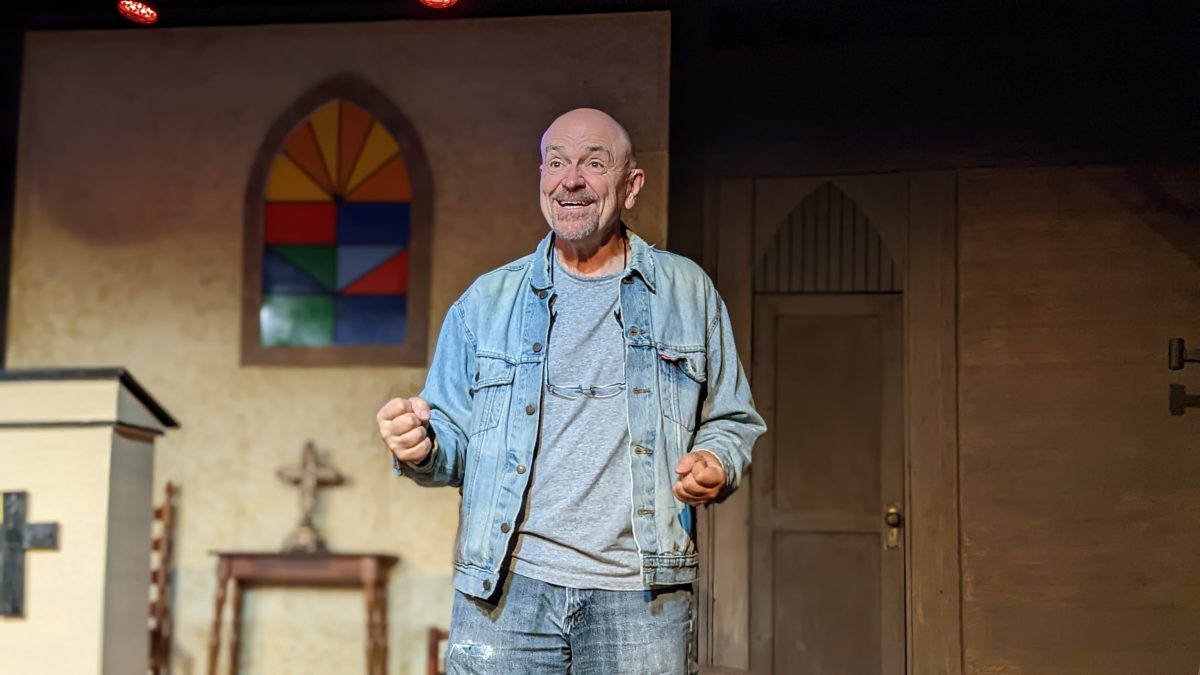Quark Theatre’s show opening this weekend isn’t exactly opening this week. It opened a while back but has been on something of a hiatus. For two and a half years.
The show — what happens to the hope at the end of the evening — had its Memphis debut in March of 2020. It was performed twice before Covid-19 shut it down.
“We thought we’d be back to finish the run in two or three months,” said Tony Isbell, director of the production and a founder of Quark. “Well, two or three months turned into almost two and a half years, but here we are, we are finishing the run.”
The pandemic was an effective crash course in the virtues of patience. Quark, being small and able to quickly adapt, bided its time until it could get back to its mission of doing “small shows about big ideas.”
“We try to produce shows that no other theater in Memphis would produce,” Isbell said. “Not because they’re bad shows, but because people maybe haven’t heard of them or they could not guarantee that they would be able to get enough of an audience to make a profit. Quark doesn’t have to worry about that.”
Isbell got to do this unconventional show in an unconventional way.
“I found the playwright’s email address,” he said. “I emailed him and said, ‘Do you ever license your shows for other people to do?’ He said yes and sent me the script, and I said that we wanted to do it.”
There are actually two playwrights. Isbell had communicated with Tim Crouch, who has had a long involvement with the other writer, Andy Smith.
“Smith writes very kind of cerebral, intellectual, presentational plays where he talks directly to the audience and he invites them to think about what theater is and how it can affect the lives of people who see it,” Isbell said. “Crouch’s plays are more about how people can become involved in the theatrical process.”
The two characters in the play reflect the two playwrights and their approaches. Marques Brown plays Andy and Isbell’s character is known only as Friend. And the plot is pretty simple, dealing with two old friends who haven’t seen each other in a few years.
“They reunite and they find out that each of them has gone in different directions, and neither of them could have expected what the other one is doing,” Isbell said.
But don’t be fooled by that somewhat conventional description.
“The thing that I found really interesting about it was that it’s also about two different styles of theater,” Isbell said. “Andy is a character based on a real person. He sits, literally sits, on a stool on one side of the stage. He reads all of his lines from the script — he doesn’t act them in the traditional sense. My character comes into this world and wants to have what we consider a ‘realistic’ encounter. As the play goes on, my character says several times, ‘Come join me. Come over here, be with me.’ And Andy’s character keeps saying, ‘I’m fine. I don’t want to come over there. I don’t want to get involved.’ It leads to whole lot of humor because there are these clashes between these two different kinds of theater, the kind of abstract intellectual presentational and the very emotional, active kind of wound-up theater.”
The show, Isbell said, is funny, very poignant, and kind of sad.
“It’s like many Quark shows,” he says. “We want people to come and be entertained. We also want them to think about what they’ve seen and think about the ideas in each show that we do.”
In August, Quark came back on the scene with a remount of its 2019 production of Wakey, Wakey with Adam Remsen. That recent production, as well as this one of what happens, are on the stage at Germantown Community Theatre. But Quark’s usual home is TheatreSouth at the First Congo Church and it will stage two more shows there this season, one in January and another in April.
Performances of what happens to the hope at the end of the evening are September 29th and 30th, October 1stand 2nd; and then the following week on October 6th, 7th, 8th, and 9th. The 6 p.m. performance on October 9th is pay what you can. Tickets are available at quarktheatre.com.
